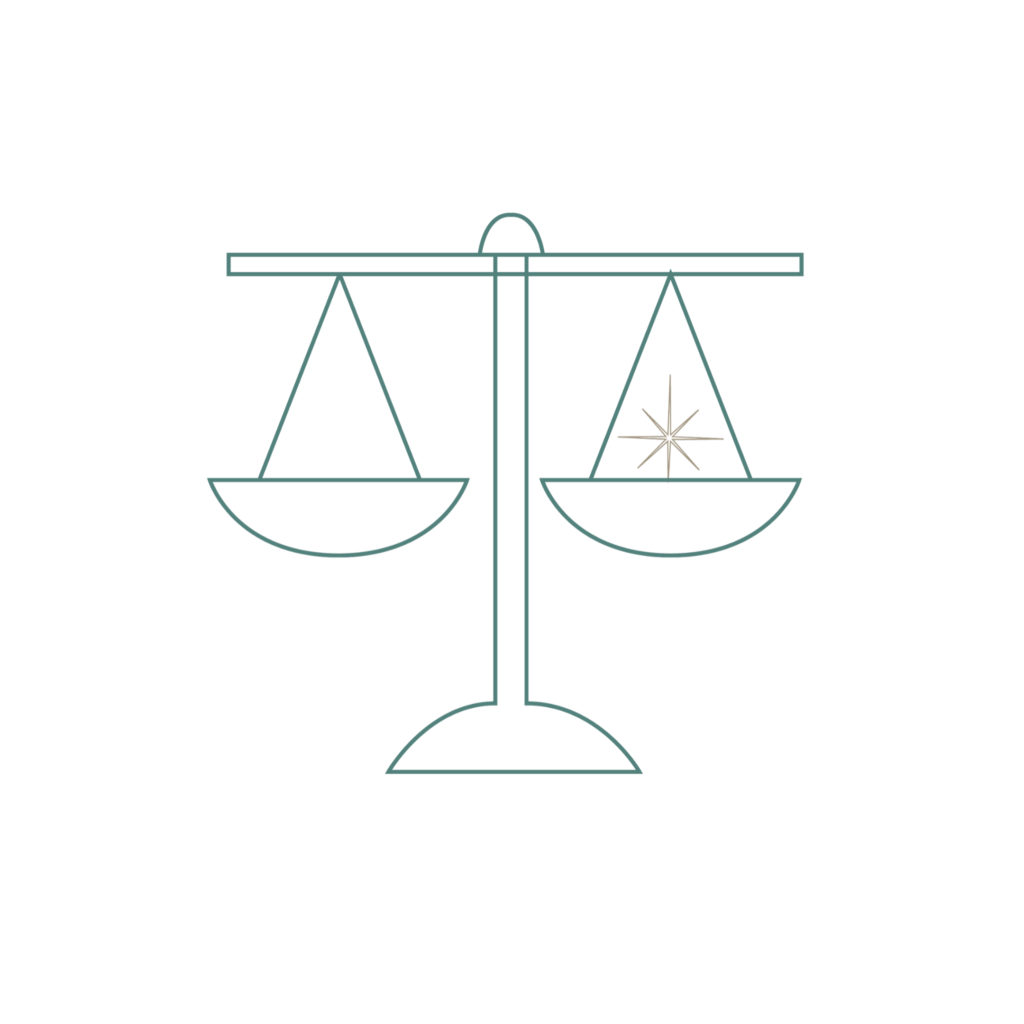“Law and justice are not always the same.” – Gloria Steinem
Each symbol in our firm’s branding – the star, moon, book, scales, and eye – represents one of our firm’s values. This post explains our commitment to JUSTICE.
The scales of justice symbolize the fair and equal administration of the law. Of course, the law is rarely ever truly fair, and its administration is often openly unjust. Yet, before the issue of administration even arises, a citizen must choose to seek legal help. This moment – the decision to engage an attorney – is when justice most often fails.
Millions of people lack access to basic legal resources. Defendants in criminal cases have a constitutional right to an attorney, but there is no equivalent for civil matters such as wills, divorce, eviction, and immigration. Civil issues are the legal issues that most people will face at some point (or many points) during their lifetime.
According to the Legal Services Corporation (a nonprofit entity formed by Congress in 1974 to provide financial support for civil legal aid to low income Americans), these are the most common reasons why citizens avoid seeking help from attorneys:
In the past, artists have been forced to choose between high-priced law firms and free legal clinics. But free resources are not necessarily tailored to artists’ special needs. Some states have pro bono groups dedicated to artists, usually called Volunteer Lawyers for the Arts. But many states, including North Carolina (where we are located), do not.
For most artists, this impossible decision results in avoidance or self-help. Searching for answers on Google, copying your own contract from a template, or paying for “assistance” from Legal Zoom may be better than nothing. Yet, without a trusted expert’s advice, artists who rely on self-help resources cannot be certain if the information, template, or robot assistance they have found is complete or accurate.
When citizens lack access to legal resources and resort to self-help, we have a justice gap. The Legal Services Corporation defines a justice gap as “the difference between the civil legal needs of low-income Americans and the resources available to meet those needs.” Artists across the United States are routinely underpaid (an issue for another blog post), which means that they routinely find themselves without access to necessary civil legal services.
de Vos Devine Law was founded to address this gap. Creative problems require creative solutions. We provide reasonably priced legal services to everyone in the arts community. We offer numerous payment models designed to fit limited budgets. And our advice is complete, accurate, and specific to artists’ exceptional needs.
Supplementary Reading:
Stanford Legal University – The Legal Design Lab
The Legal Services Corporation
